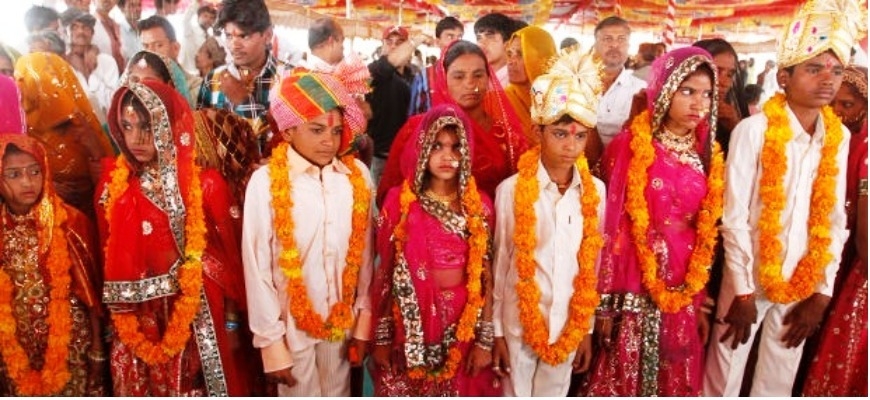Country smiles in the battle against child marriage; the evil practice declines to 26.8%
New Delhi, December 22: Child Marriages in India were common throughout history for a variety of reasons, including poverty, insecurity, as well as for political and financial reasons. But it affects both boys and girls, therefore, the central government has taken several measures to eradicate this evil practice from society. As per National Family Health Survey, the percentage of women (in the age group 20-24 years), who were married before legal age, has reduced from 47.4% in 2005-06 to 26.8% in 2014-15.

Notably, while giving a reply to a question in Rajya Sabha on Thursday, Women and Child Development Minister Virendra Kumar said as per National Family Health Survey, the percentage of women (in the age group 20-24 years), who were married before legal age, has reduced from 47.4% in 2005-06 to 26.8% in 2014-15.
Minister Virendra Kumar further said that as per analysis of Census 2011 data by NCPCR, ‘nil’ marriages were reported in the age group of 0-9 years for both boys and girls. Marriage at a young age is detrimental to both girls and boys, and the Ministry is taking steps to end this practice. For girls, child marriage has particular health effects as it leads to an increased fertility span resulting in early pregnancy, birth complications, delivery of low birth-weight babies, increased maternal and infant mortality rate.
“As per census 2011, Rajasthan, Bihar, Uttar Pradesh, Madhya Pradesh, Gujarat, West Bengal and Jharkhand are among the top states reporting the highest percentage of child marriage among both boys and girls. The Government of India has enacted the Prohibition of Child Marriage Act, 2006 in order to prohibit child marriages rather than only restraining them,” he said.
“The States/UTs from time to time are being regularly pursued for effective implementation of the Prohibition of Child Marriage Act, 2006. The practice of Child Marriages is largely due to the prevailing social customs, tradition, illiteracy, poverty, low status of women in society and lack of awareness. These issues cannot be tackled by legislative interventions alone. This is a continuous process and Government undertakes media campaigns and outreach programmes to address this,” the Minister concluded.